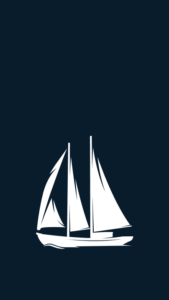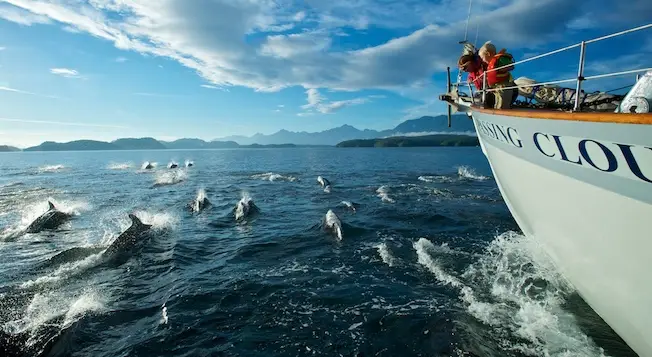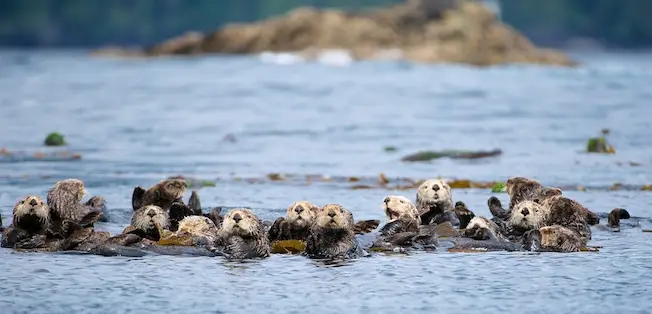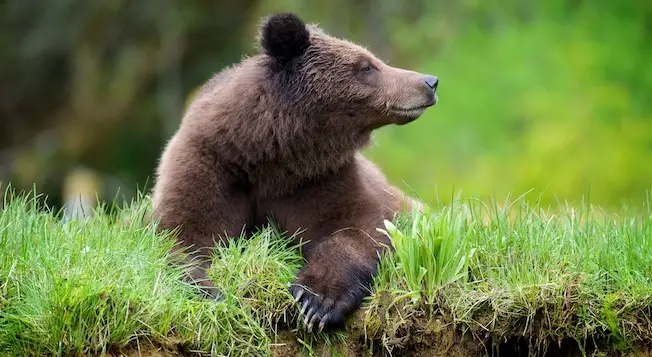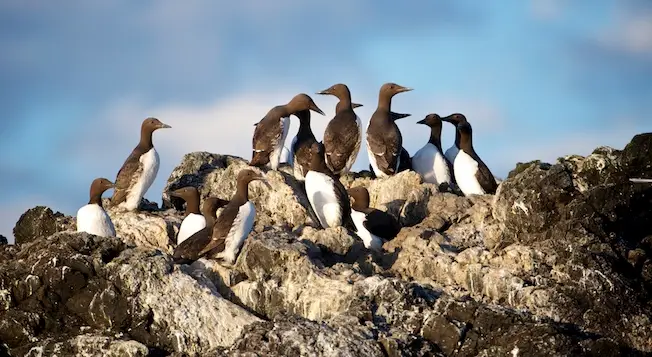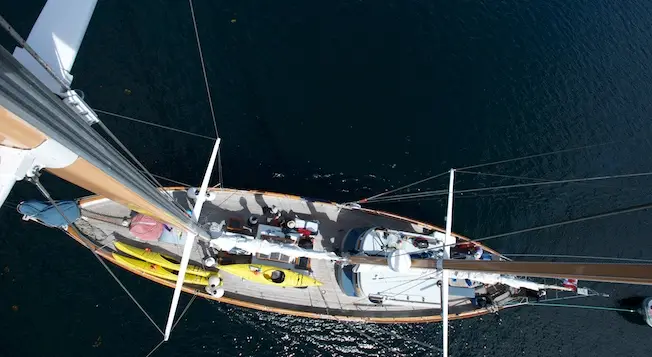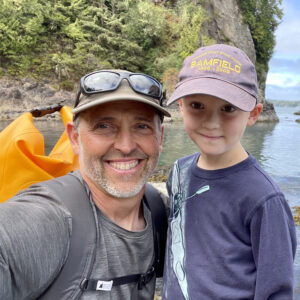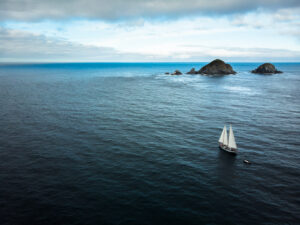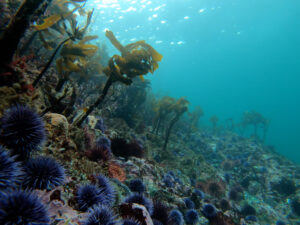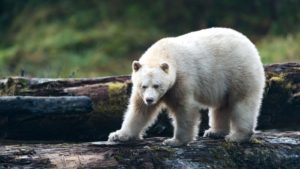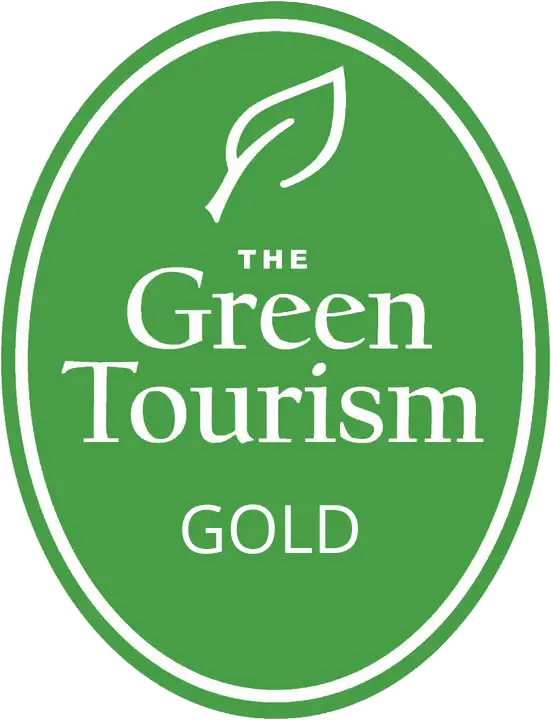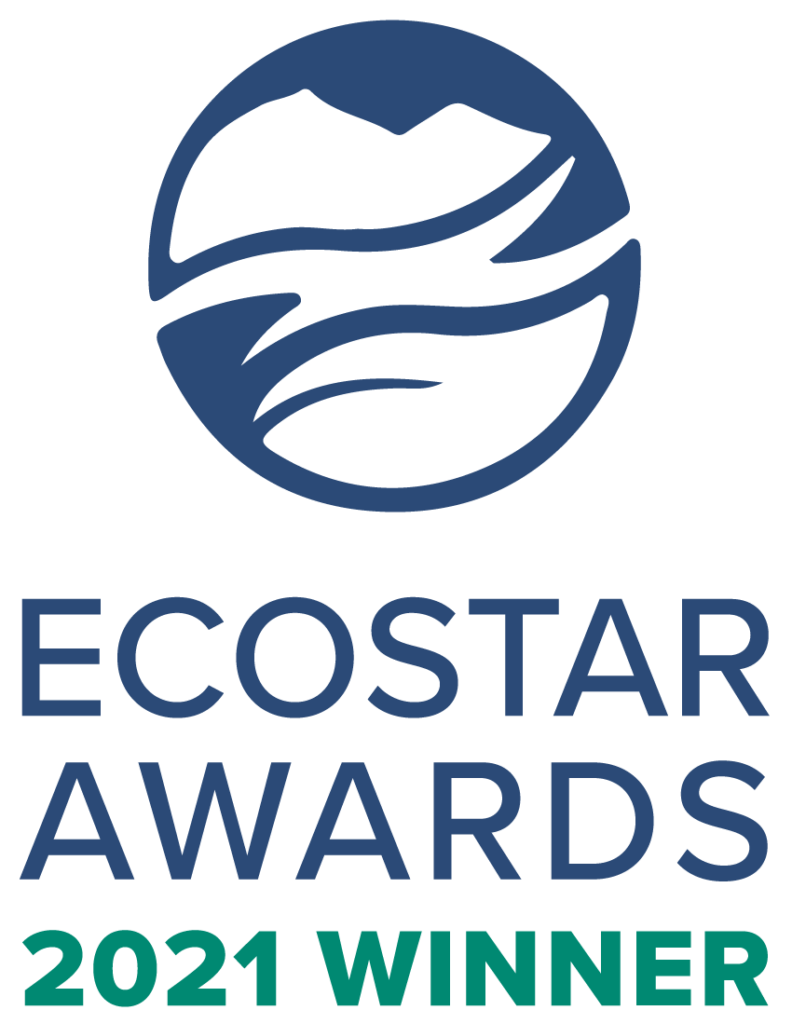I was recently asked: “Why, after completing a PhD and Postdoctoral Fellowship in marine ecosystem science in the Department of Zoology, Institute for Resources, Environment and Sustainability (IRES), and the Biodiversity Research Centre at UBC, did you decide to buy a classic wooden schooner and start a natural history and educational travel organisation called Outer Shores Expeditions?” Admittedly, more than 10 years of graduate and post-graduate training in ecology and marine sciences do not typically lead in this direction; however, rather than an abrupt departure from academia, for me founding Outer Shores is an exciting opportunity to both draw upon my academic skills and experience and to contribute to conservation here on the BC coast.
As a Postdoctoral Fellow in IRES, my colleagues and I integrated marine ecosystem ecology with investigations of the values that humans and cultures place on different ecosystem attributes and services to better inform conservation and management alternatives. What we found highlighted for me a central issue facing conservation biology today – different people from different places and cultures perceive and value Nature differently. That is, the nature and extent of human engagement or connection with Nature (i.e. experience, knowledge, familiarity, history, and dependence) underlies our values around Nature. In turn, social and political support for conservation is driven by human values and the extent of resulting stewardship and advocacy (or lack thereof).
Unfortunately, at a time when the natural world needs stewardship and advocacy the most – overfishing, climate change, ocean acidification, and global loss of biodiversity, are but a few examples of current challenges – humans are becoming increasingly disconnected from it. Nowhere is this trend more striking than with the remarkable collapse of children’s engagement with Nature. In the US, in just six years (1997- 2003) the number of children with outdoor hobbies fell by half (Louv 2005). In the UK, in just one generation, the proportion of children regularly playing in wild places has fallen from more than 50% to less than 10%, and 11- to 15-year-olds in that nation now spend half their waking hours in front of a computer screen (Louv 2005). Most concerning is that as children’s engagement with Nature declines, so too does the likelihood that the next generation will engage in the social and political advocacy needed to protect it.
This dilemma, and the increasing debate around whether and how scientists should be advocates for the ecosystems they are inextricably knowledgeable of and passionate about, led me to ask myself: “How can I best apply my personal values and professional skills to contribute to conservation of the species, ecosystems, cultures, and communities that I am most knowledgeable of and passionate about? Do I continue as an “impartial” scientist generating primarily literature, or do I plot a course for myself that focuses on public engagement with Nature, through natural history, education, tourism, citizen-science, and science communication?” Founding Outer Shores Expeditions is my answer to this question. For me, Outer Shores is an opportunity to help disconnect people from the demands and technologies of their daily lives and plug into Nature. And, I see the schooner Passing Cloud literally as a vessel for traveling to, learning about, and connecting with the incredible species, ecosystems, and cultures of coastal British Columbia.
Guests joining our ship-based natural history expeditions travel to and experience first-hand some of the most biodiverse regions and ancient indigenous cultures on the Planet. Students participating in our experiential education programs will be immersed in the wildlife, ecosystems, and communities we visit, and contribute to our long-term citizen-science projects.
I hope you’ll join us on a voyage of discovery to British Columbia’s Outer Shores!
Russell Markel, PhD
Founder and President, Outer Shores Expeditions
References:
Louv, R (2005) Last Child in the Woods: Saving Our Children From Nature-Deficit Disorder. Algonquin Books of Chapel Hill
